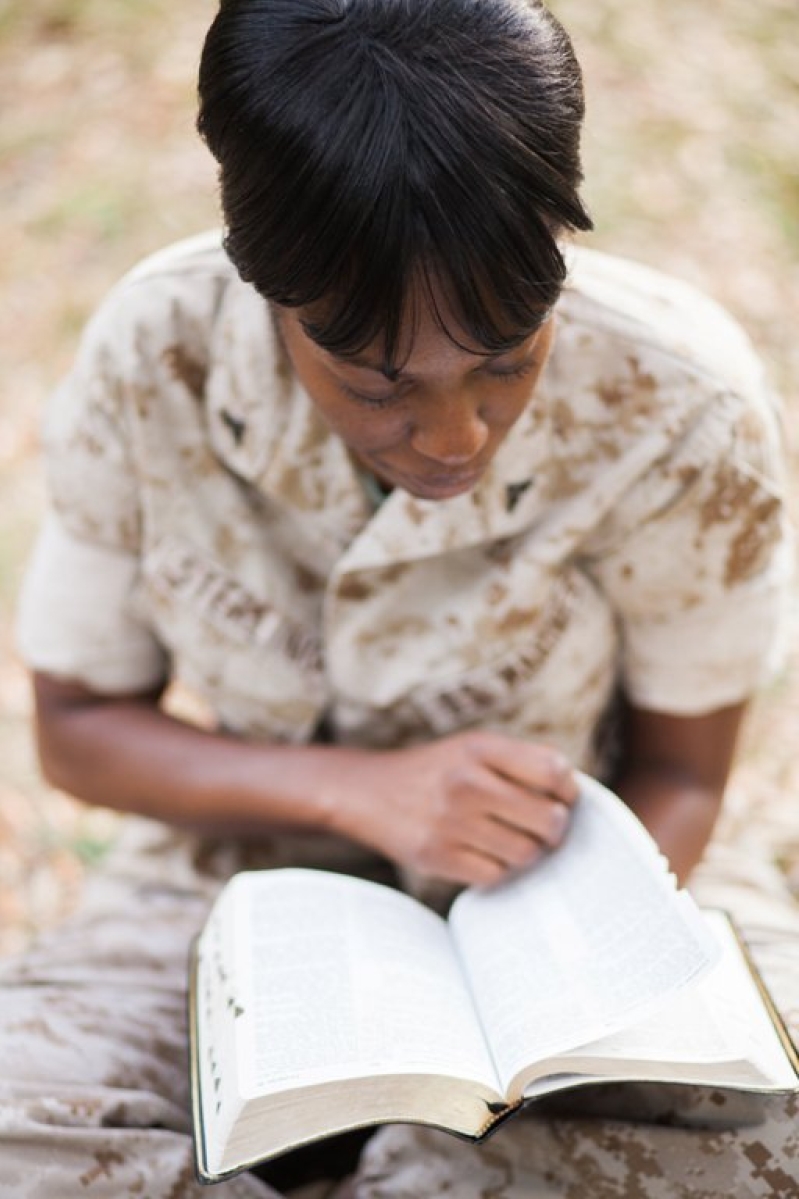
The Sterling legal case began when former U.S. Marine Lance Corporal Monifa Sterling was court-martialed for refusing an order to remove Bible verses from her workspace. Others are joining in now in the name of religious freedom.
Sterling was court-martialed in 2014 after she refused to take down three handmade placards inscribed with various Bible verses, including Isaiah 54:17, which reads, "No weapon formed against you shall prosper." Sterling said her supervisor ordered her to take down the Bible verses and remarked that she "didn't like [their] tone."
Because Sterling invoked the Religious Freedom Restoration Act (RFRA) in her defense, the question before the Supreme Court regarding this case since 2014 is how RFRA should be interpreted to protect individuals when the government burdens a person's religious exercise.
The outcome of this case is believed by some to the potential to determine the extent of religious freedom for all Americans, not just those serving in the military.
In August 2016, the highest U.S. military court upheld the bad conduct discharge of Sterling, reports The Washington Post. In a 4-1 decision, the U.S. Court of Appeals for the Armed Forces said the RFRA does not apply to Sterling's case. She was convicted of six offenses stemming from her noncompliance.
Seven parties recently filed "amicus briefs," or "friend of the court" documents, with the Supreme Court at the cert stage, asking the Court to take the case of Sterling v. United States.
"It's rare for a Supreme Court case to receive a single amicus brief at this stage, let alone seven," said President and CEO Kelly Shackelford, of First Liberty Institute, the firm along with former solicitor general of the United States Paul Clement of Kirkland & Ellis LLP, representing Sterling.
"We're blown away to see such a broad range of parties of such high caliber weigh in on this case to support religious freedom."
The amici, who each have a vested interest in the outcome of the case, encourage the court to review Sterling v. U.S. They include:
Dr. Simcha Goldman, an Orthodox Jew, who was the plaintiff in the historic Supreme Court case of Goldman v. Weinberger (1986), where he sought the right to wear a yarmulke while in uniform. His case, which was lost in a 5-4 decision, was the last military religious freedom case heard by the Supreme Court. Goldman urges the court to protect religious minorities in the military.
Lieutenant Colonel Kamal S. Kalsi, U.S. Army Reserve, the first Sikh member of the Armed Forces given a religious accommodation to serve on active duty with a beard and turban, argues the lower court's ruling risks creating obstacles preventing people of faith from serving in the military.
Thirteen retired military generalsargue that religious freedom is vital to the military and should be protected.
Fourteen States' Attorneys Generals say the lower court misapplied RFRA and argue that how the court interprets RFRA will directly impact service members who are citizens of their states.
Religious Freedom Restoration Act expert Thomas Berg filed a brief on behalf of multiple religious and civil liberties organizations, including the Chaplain Alliance for Religious Liberty, the National Association of Evangelicals, the Ethics and Religious Liberty Commission, the Lutheran Church Missouri Synod, The General Conference of Seventh-day Adventists, and others.
Foundation for Moral Lawargues the historical significance and importance of religious freedom in the military.
Thirty-Six Members of Congressargue that the lower court's interpretation of the Congress-authored RFRA is not consistent with the law's text and purpose. They urge the court to review the Sterling case.
"Voices in the military, in the church, in religious minorities, and from across the nation are uniting to ask the Supreme Court to protect religious freedom," Shackelford said. "We hope the Supreme Court will heed their requests and accept this historic religious freedom case."






